Visual Collections:
Southern Media Archive
The mission of the Southern Media Archive is to identify, collect, preserve, and make accessible the cultural expression of the South through a variety of forms of documentary media. The Archive was established by the University of Mississippi's Center for the Study of Southern Culture to collect photographs, film footage, and audio recordings of Southerners for use in creative documentary projects. The archive moved to the Department of Archives and Special Collections in 2000.
Below are collections from the Southern Media Archive that are currently accessible. More collections will be added once they are processed.
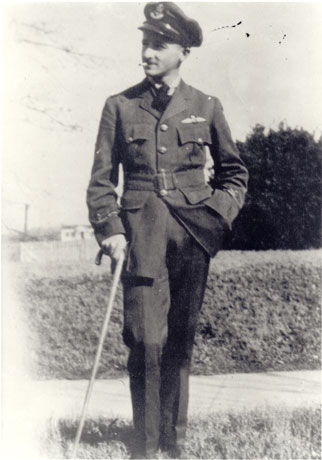
The Cofield Collection. circa 1890s -1989.
Local studio photographer "Colonel" J.R. Cofield recorded Lafayette County from 1928 until 1973.
This collection includes photographs of William Faulkner, his family, the town of Oxford,
Lafayette County, and photographs taken for the University of Mississippi Yearbook.
The collection also contains vintage prints collected by Cofield relating to the Faulkner
and his life. Inventory available.
The book William Faulkner: The Cofield Collection by Jack Cofield
(Yoknapatawpha Press, Oxford, MS, 1978) contains many of the images from the collection.
A list of images
found in the book is available.
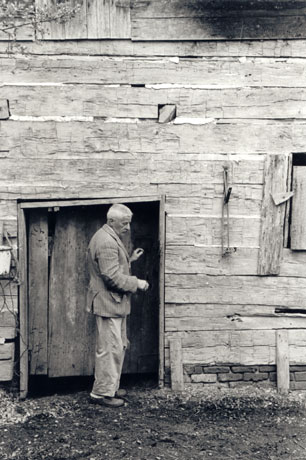
The Dain Collection. 1961-1962.
Martin J. Dain, a professional photographer from New York, traveled to
Oxford in the early 1960's to document the world of William Faulkner.
After Faulkner's death in 1962, Life Magazine sent Dain back to Oxford
to cover his funeral. The collection of approximately 9,000 images includes
pictures of Faulkner, Rowan Oak (Faulkner's home), and the daily life
of Lafayette county residents. The collection also contains images Dain
shot for Life Magazine of University of Mississippi professor James Wesley
Silver.
Images from this collection appear in the books, Faulkner's County:
Yoknapatawpha by Martin J. Dain (Random House, 1964) and Faulkner's
World: The Photographs of Martin J. Dain edited by Tom Rankin (University
of Mississippi Press, 1997).
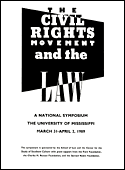
The Civil Rights Movement and the Law. 1989
The University of Mississippi held "The Civil Rights Movement and the Law: A National Symposium" to examine and assess the effects of civil rights litigation on contemporary law and society. Participants in the symposium include lawyers and judges who participated in many of the landmark cases of the Civil Rights Movement. Among the many participants were two judges of the former United States Court of Appeals for the Fifth Circuit (Elbert P. Tuttle and John Minor Wisdom), and three participants on both sides of the integration drama at Ole Miss in 1962, John Doar, Constance Baker Motley, and Charles Clark. The collection contains audio, video, and typed transcripts of panel discussions as well as oral histories recorded with the participants.
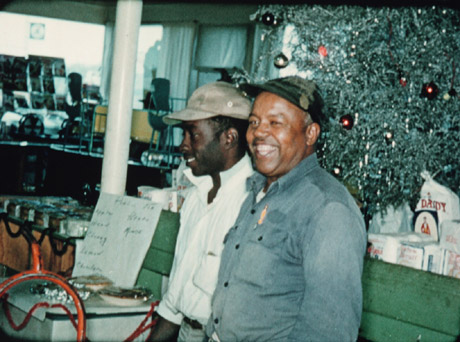
Home Movie Collection. 1938-1990.
Through a Center for the Study of Southern Culture education project entitled "Picturing Home: Family Movies as Local History", the Southern Media Archives acquired sixty collections of home movie footage recorded on 16mm, 8mm, and super 8 film. The home movies and amateur footage in the collection capture images of everyday life in the South. Forty-two of these films transferred into VHS format are available for research. A shot list of these films is available.
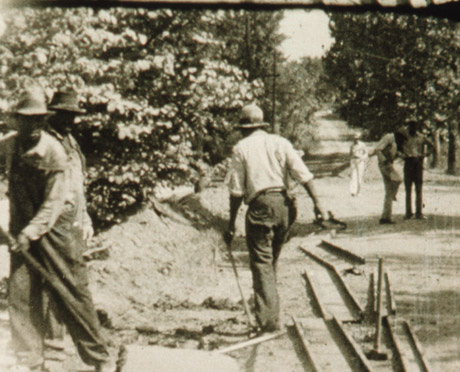
Lytle Collection. 1938-1958.
The late Mississippi artist Emma Knowlton Lytle shot 8mm and 16mm silent black and white and
color footage on her family's Mississippi Delta cotton plantations at Highlandale and
Perthshire. Emma Lytle created a documentary called "Raisin' Cotton," from footage she
filmed from 1940 to 1942. The footage in the collection documents the daily life of
African-American and whites living and working on the plantations. Additional footage
in the collection includes scenes from the Gulf Coast town of Biloxi, Mississippi
and events at the country club in Rosedale, in the Mississippi Delta.
The Southern Media Archive restored Lytle's footage through grants
from the National Film Preservation Foundation and the Women's Film
Preservation Foundation. A shot list is available.
Media and the Civil Rights Media. 1987
The symposium, "Covering the South: A National Symposium on the Media and the Civil Rights Movement," jointly sponsored by the Center for the Study of Southern Culture and the departments of Journalism and Afro-American Studies, examined the Civil Rights Movement and the role the media played in both reporting and shaping the movement. The collection contains audio and video of panel discussions and oral histories from participants such as Harry Ashmore, David Halberstam, Dorothy Gilliam, Haynes Johnson, Nick Katz, Bill Minor, Willie Morris, and Richard B. Stolley are available. An inventory and typed transcripts are available.